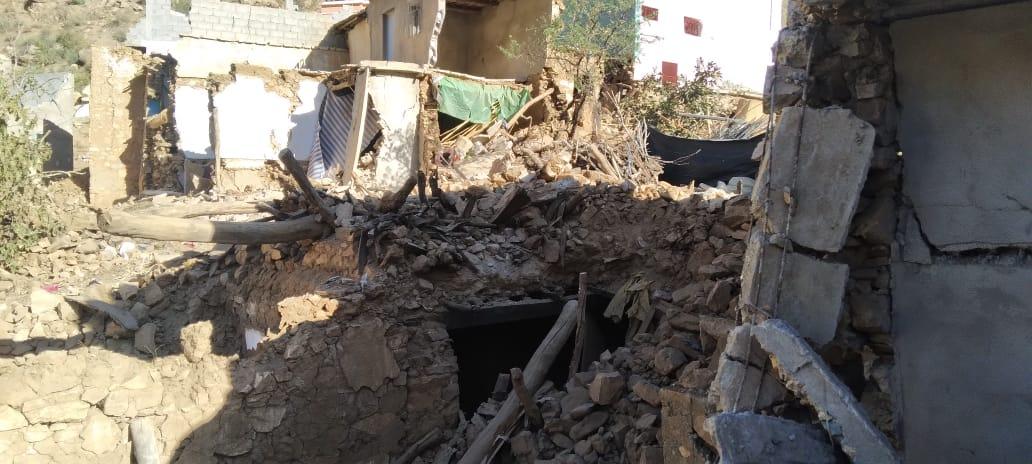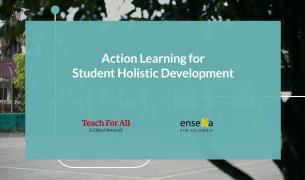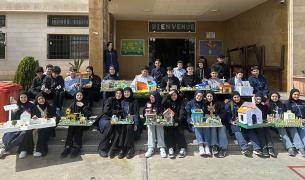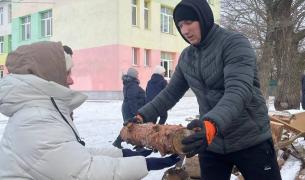Recovering from the earthquake: From crisis to community leadership

As the 6.8-magnitude earthquake struck Morocco, I had just completed a teacher training session on early childhood care and development (ECCD) in Fès. In the midst of discussions, the chairs in the lobby began moving, raising alarm and panic among everyone present. The teacher training supervisor urgently directed us all outside, where we quickly realized the severity of the situation – a huge earthquake.
When I returned to my city of Taroudant, my enthusiasm to teach and enter my classroom was met with a stark reality – the school I was assigned to, Medersat.com Ait Dhan, had been badly damaged by the earthquake. There were dangerous cracks throughout the school building, including the school entrance and administration offices. The earthquake had also damaged my housing. Facing transportation difficulties, I had to temporarily reside in one of the classrooms. Despite these unforeseen challenges, I knew how important the following week was – during which teachers throughout Morocco would be welcoming their students for the start of the school year – and so I got the principal's approval to temporarily work in an alternative classroom designated for primary school students until the renovation of the preschool classroom was completed.
My students, although only four years old, were still acutely aware of the earthquake's devastating impact on their community and school, and consequently developed a psychological fear of enclosed spaces. Driven to create a positive learning environment, I met with my students’ families and caregivers to find ways we could together reassure them. I worked hard to create a welcoming and protective atmosphere for my students.
I joined a local initiative to collect donations for the earthquake-affected families in the High Atlas mountains, volunteered and distributed aid to the Sidi Abdullah Oussaïd community. Teach For Morocco’s leadership development programme helped me feel equipped to step up to this challenge – teaching me the power of collective leadership and the need to collaborate with others.
Now that three months have passed and I reflect on this natural disaster, I see the critical importance of self-control, resilience and patience during such crisis situations. My advice to any teachers facing similar challenges is to make timely decisions, have effective communication skills, and to cooperate with others – these three leadership qualities can help you navigate crises and contribute positively to impacted communities.


